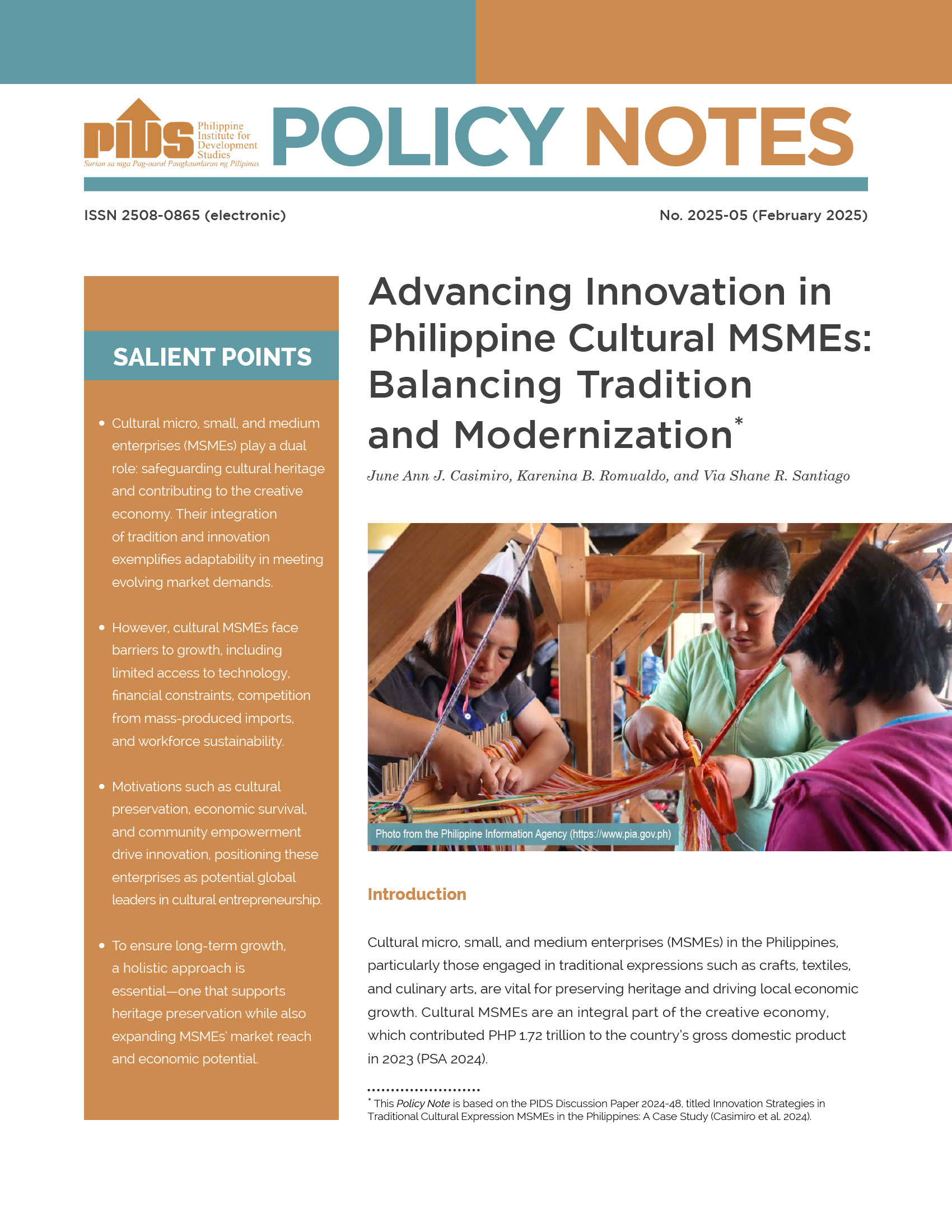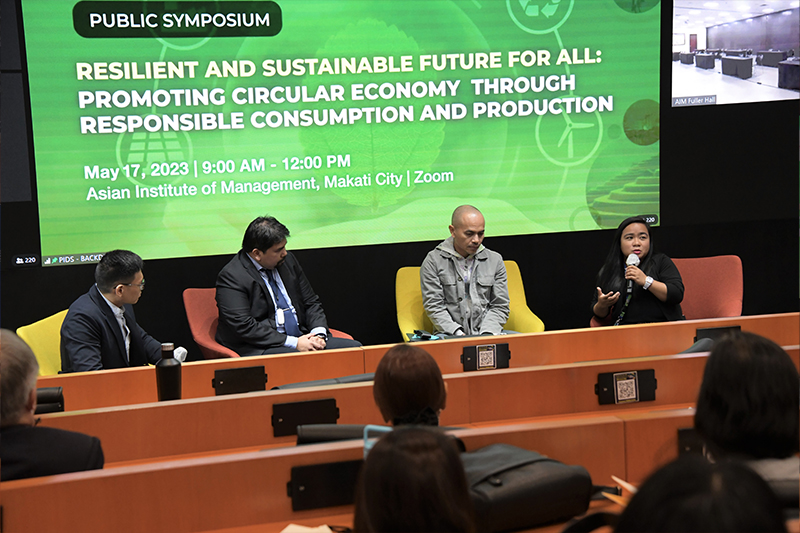MANILA — The government needs to have a champion for developing stronger policies and interventions to support and encourage innovations, which are applied to products and services meant to boost economic growth.
In a discussion paper, Philippine Institute for Development Studies (PIDS) president Gilberto Llanto and senior research fellows Jose Ramon Albert and Ramonette Serafica said both the legislative initiatives in the Senate and the House are “welcome developments” to improve the country’s innovation ecosystem.
They said these initiatives, however, must be focused on removing barriers and bottlenecks to innovative initiatives in regulatory frameworks; and providing impactful support to innovators.
Authors underscored the need for the government to build a good science base, although innovation takes from science and technology (S&T) or research and development (R&D).
The paper was also authored by PIDS junior research fellow Francis Mark Quimba, and research assistants Jana Flor Vizmanos and Jose Carlos Alexis Bairan.
“It is important to pursue an impact evaluation of some large-funded S&T projects to determine what works and what doesn’t,” they said.
Innovation involves implementing new or significant improved goods and services, production processes, marketing or organizational methods for adding value.
The paper cited earlier survey results suggesting that less than half of the firms in the country are innovators, with larger-sized firms innovating more than micro, small and medium establishments.
Moreover, it said there is a need to improve information dissemination on public programs available to assist firms in innovating.
Networking, linkages and collaboration among the government, industry associations and universities and research institutions also require further enhancement, it added.
In a discussion paper, Philippine Institute for Development Studies (PIDS) president Gilberto Llanto and senior research fellows Jose Ramon Albert and Ramonette Serafica said both the legislative initiatives in the Senate and the House are “welcome developments” to improve the country’s innovation ecosystem.
They said these initiatives, however, must be focused on removing barriers and bottlenecks to innovative initiatives in regulatory frameworks; and providing impactful support to innovators.
Authors underscored the need for the government to build a good science base, although innovation takes from science and technology (S&T) or research and development (R&D).
The paper was also authored by PIDS junior research fellow Francis Mark Quimba, and research assistants Jana Flor Vizmanos and Jose Carlos Alexis Bairan.
“It is important to pursue an impact evaluation of some large-funded S&T projects to determine what works and what doesn’t,” they said.
Innovation involves implementing new or significant improved goods and services, production processes, marketing or organizational methods for adding value.
The paper cited earlier survey results suggesting that less than half of the firms in the country are innovators, with larger-sized firms innovating more than micro, small and medium establishments.
Moreover, it said there is a need to improve information dissemination on public programs available to assist firms in innovating.
Networking, linkages and collaboration among the government, industry associations and universities and research institutions also require further enhancement, it added.












